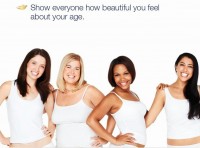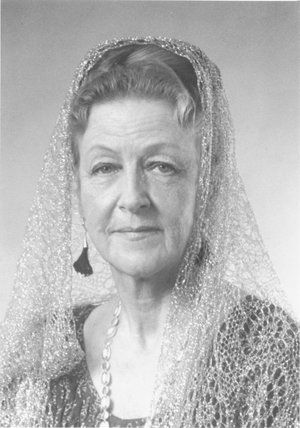I once attended a youth event where a speaker, riffing on women’s issues, announced that all of the young women in the room were very beautiful. Yes, no matter what anyone else said, that was the truth of it. There was some awkward shuffling and some applause among my peers.

The male speaker went on to say that though we were all different sizes and ages and races, we were all beautiful. Like many woman in the room, I understood that what is considered beautiful in the United States mainstream is often narrow, often light-skinned and thin and young, so had this been an audition for a soap commercial, the words might have sounded inspiring.
But this was a spiritual event—not a beauty pageant, so I was left puzzled. And though many women I know express some anxiety over not achieving ideal beauty standards (or fear that others can’t take us seriously when we deviate from those societal ideals), we’re also aware that beauty is not our highest aim. After all, there’s work, service, and self-actualization to consider.
So why can’t everyone stop talking about beauty already?
Beauty as Worth
It has become a sort of validation that we give to women—the word beauty. If she is a kind person we say she is beautiful inside and out, though why the “out” is important, I’m not sure. If she’s a young woman with a powerful voice, we introduce her as the beautiful and talented singer, though her appearance has little to do with her voice.
And it’s not just semantics. Beauty can have big implications for how we cut it in the world—according to at least one study, women who are considered attractive got more job interviews than men or women who are not. How’s that for conflating appearance with worth?
I’m not saying that it’s wrong to ever acknowledge physical female beauty, but when praise for women’s appearances is presented as female empowerment, or when a stranger tells me—unsolicited—that I’m beautiful just the way I am (um, thanks?), I can’t help but wonder about our fascination with being beautiful.
Society has issues regarding beauty, and as Baha’is we’re not immune from being influenced by those societal norms. So it’s good to be aware of them and how they play out in our daily lives.
At the same time that our broader society places lots of importance physical beauty (especially for women), Baha’is regard beauty as a virtue.
Beauty as a Virtue
So what does this mean? I’ve got some grasp of what honor, grace, truthfulness, mercy, and justice mean—but as a virtue, beauty seems more elusive. I’m not exactly sure of all it entails but I have a suspicion that it doesn’t mean chasing after the ephemeral societal notions of physical beauty—standards that differ across eras, cultures, and subcultures, no less.
And after all, Baha’u’llah writes:
“O Friends! Abandon not the everlasting beauty for a beauty that must die, and set not your affections on this mortal world of dust.” (The Hidden Words, from the Persian #14)
In another place, Baha’u’llah says:
“O Son of Desire! Give ear unto this: Never shall mortal eye recognize the everlasting beauty, nor the lifeless heart delight in aught but in the withered bloom. For like seeketh like, and taketh pleasure in the company of its kind.” (The Hidden Words, from the Persian #10)
The word beauty appears again and again in the Baha’i writings. We read about the “everlasting beauty,” not to mention the “Ancient Beauty,” the “Blessed Beauty,” and the “Abha Beauty,” all titles of Baha’u’llah. For those looking for a starting point to more fully understanding what beauty means as a virtue, why not chip away at a stack of books—religious texts, sociological books—anything that can help grow your understanding. That’s what I’m doing; it’s no small reading list but I know I’ll be better for it.
So, if true beauty is more of a virtue than a physical standard, how do we manifest it?

Historical Baha’i Women
My solution is to look to history. Not because the women of the past didn’t make their mistakes, just like I do—they’re human; you can bet they did. I look to the past because when I think of the women I admire in Baha’i history, their physical appearance isn’t what comes first to my mind. It’s their deeds.
I see their virtues, strengths, and achievements. Looking at the heroines of the Faith, it is their courage, bravery, eloquence, perseverance, humility, fortitude, and, grace that resonate with me.
I think of the courage of Tahirih in defying family and tradition in order to arise to teach the Babi Faith. I think of her bravery in the face of martyrdom. I think of the eloquence of Ruhiyyih Khanum, whether through her prose, poetry, or letters written on behalf of Shoghi Effendi. I think of the perseverance of Sadie Oglesby in promoting the cause of race amity in America after her transformative pilgrimage in 1927. I think of the humility of Bahiyyih Khanum, the way she worked selflessly to support the cause during the lifetime of her father Baha’u’llah, her brother ‘Abdu’l-Baha, and especially the crucial role she played during the ministry of Shoghi Effendi. I consider the fortitude of Corinne True who worked tirelessly to help build the House of Worship for North America, even in the face of great personal tragedy. And I think of the grace that so many of these and other women displayed in their lives.
I guess what I’m saying is—though I can’t exactly describe spiritual beauty, I feel that somewhere in the sum of all these selfless works—for me that’s where true beauty lives.
What do you think beauty looks like as a virtue?
This is a very interesting subject. Its hard to think of beauty as a virtue in the moral sense, like say purity. I always thought it wrong to compliment a woman on her beauty, because it was God (or nature if you’re an atheist) that made her that way, not her own effort. But a smile, a radiant compassion, a loving look-these are beautiful in the face of man or woman. And art, music, indeed any form of work can have beauty if it is perfectly executed. Beauty can be an intellectual as well as a physical thing, as in the expression of a complex and logical train of thought, or a powerful idea. In fact beauty seems to be everywhere and as a virtue it can be expressed in the perfecting of our actions, our courtesy and politeness and-the list goes on and on!
Thanks for sharing, Ian!
Random thoughts:
1) If we move away from materialistic thinking about men and women then we may become more comfortable with complimenting ‘external’ beauty. So in a materialistic construct, if a woman is seen as an object to be attained in the making of a man’s perfect life then he will likely want to choose a woman who many other men would agree is beautiful. Of course the same is true of women choosing mates in an objectifying manner, although she might choose one who many other women would agree is successful.
2) This leads then to buying into the notion that there are objective standards for what constitutes external beauty, even though we know that beauty standards are somewhat culturally based with individual nuances.
3) In a society more infused with spiritual concepts, I don’t know that we would stop noticing or praising ‘external’ or physical beauty in other human beings. But we would not think about mating/marrying as ‘acquiring’ another human being to complete our lifestyle. So, what we are willing to call beautiful might change and be more individuated.
4) I bet our understanding of beauty as a virtue would transcend anything we can conceive of now in a society more infused with spiritual concepts.
The Virtues Project defines beauty as:
“Beauty is a sense of wonder and reverence for the harmony, color, and loveliness of the world. Beauty opens us to the deep patterns of life that inform and delight us. It allows us to feel our connectedness with all creation. It calls us to look beyond superficial appearance to appreciate the gifts in each person. Our creativity brings forth beauty in music, art, dance and language. We practice beauty by creating a space of grace and order around us. We can reflec beauty in the way we dress, move and speak. Living beautifully is a unique expression of our divine nature.”
https://www.facebook.com/TheVirtuesProjectOfficialPage/photos/pb.133030350081012.-2207520000.1406596237./803609399689767/?type=3&theater
Pretty much sums up my feelings on the subject with regard to virtue.